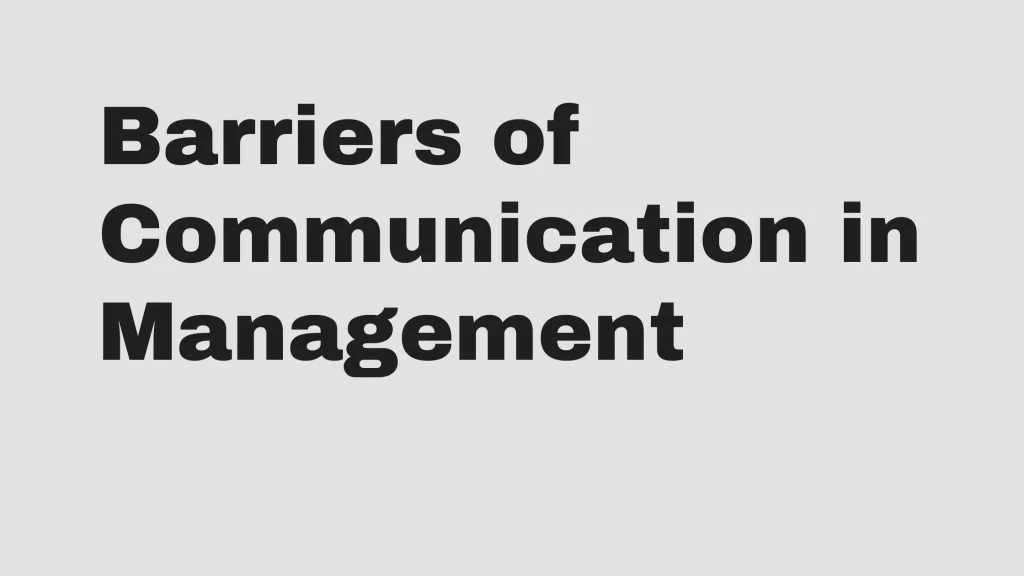Ineffective communication and emotional barriers often play a more significant role than expected. Understanding these barriers is crucial for fostering open and productive interactions in the workplace or our everyday lives. This blog post delves into the complexities of emotional barriers to communication, offering insights into overcoming these challenges for improved personal and professional relationships.
Contents
Emotional Barriers Meaning
Emotional barriers are feelings or attitudes that can hinder effective communication. These barriers arise when emotions like fear, anger, sadness, or frustration get in the way of understanding and sharing information.
For example, if someone feels anxious or stressed, they might find it hard to express their thoughts clearly or listen to others. Similarly, if a person is angry or upset, they might misinterpret what others are saying or react negatively. Emotional barriers can make conversations tense and unproductive.
They can occur in personal relationships, workplaces, and any setting where people interact. To overcome emotional barriers, it’s important to recognize and manage your emotions, practice empathy, and create a supportive environment where everyone feels heard and understood.
The Impact of Emotional Barriers in Communication
In workplace communication, emotional barriers can severely limit an individual’s communication effectiveness. These barriers can include an inability to express thoughts and feelings clearly, leading to misunderstandings and conflicts. Moreover, emotional barriers to learning and group communication can hinder the full potential in the workplace, affecting individual and collective productivity.

Common Types of Emotional Barriers
Insecurity and Emotional Insecurities
Insecurity is a common emotional barrier. Emotional insecurities can manifest as a lack of confidence in one’s thoughts or opinions, leading to difficulty expressing oneself clearly. This often results in communication that comes across as hesitant or needs clarification.
Emotional Triggers and Responses
Emotional triggers can prompt an emotional response that is disproportionate to the situation. This might include an intense reaction to criticism or a defensive attitude when challenged, which can obstruct effective collaboration and open communication.
The Need to Be Right and Dichotomous Thinking
The need to be correct and dichotomous thinking, or “black and white” thinking, can also be significant emotional roadblocks. This mindset can limit the ability to see creative solutions in the middle, leading to rigid communication that only accommodates others’ perspectives.
Low Emotional Intelligence
Low emotional intelligence, or emotional awareness or control, impacts understanding and managing one’s emotions and empathizing with others. This can make it challenging to gauge the emotional climate of a conversation and respond appropriately.

Overcoming Emotional Barriers to Communication
Develop Emotional Intelligence
Working on your emotional intelligence is crucial for overcoming emotional barriers in communication. Emotional intelligence involves understanding your own emotions and those of others, which can guide you in navigating communication challenges more effectively.
Recognize and Address Emotional Triggers
Recognizing your emotional triggers and learning how to address them is vital. This requires self-awareness that allows you to identify when you’re feeling triggered and why. Once recognized, you can employ strategies to manage these emotions, such as relaxation techniques or calming down.
Practice Open and Honest Communication
Open communication is critical to overcoming many emotional barriers. This involves being honest about your feelings and thoughts while being receptive to the opinions and feelings of others. Effective communication also means listening involves more than just hearing words; it involves understanding the underlying emotions and intentions.
Use Relaxation Techniques and Exercises
Relaxation techniques and exercises can be powerful tools for managing emotional responses in communication situations. Techniques like deep breathing, meditation, or mindfulness can help you relax and think more clearly, improving your communication ability.
Seek Feedback and Demonstrate Humility
Regularly seeking feedback on your communication skills and demonstrating humility, especially when you’ve made a mistake, can significantly enhance your ability to overcome emotional barriers. Acknowledging that you don’t always have the last word or the best perspective has a way of opening up communication channels.
Boko Ducky has over 10 years of experience in helping individuals and organizations improve their communication skills.



